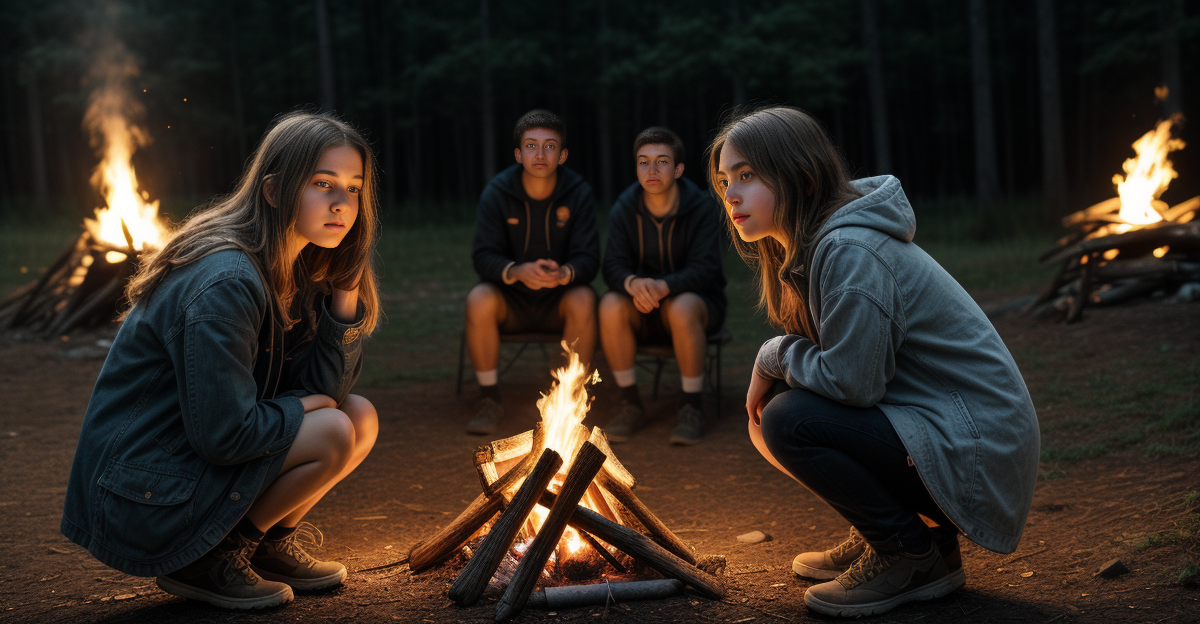
Explore the rise of viral conspiracy theories & their impact on society. Are they the new campfire s
Hey there, fellow internet explorers! Your virtual guide is BACK, plunging headfirst into another digital rabbit hole. Today’s topic? Prepare for a thought-provoking journey as we explore whether viral conspiracy theories are truly the NEW campfire stories. Think back to those nights around the fire. We shared spooky stories to explain the unexplained, to connect with each other, and, let’s be honest, to give ourselves a good scare. Now, those spooky tales have gone digital, trading crackling flames for the glowing screens in our hands. But are they serving the same purpose? Let’s unpack this digital campfire treat. **The Psychology of Belief: Why We Embrace Conspiracy Theories** Why are we so drawn to these often-bizarre ideas? It turns out, it’s deeply rooted in human psychology. * **The Need for Control:** Life can feel chaotic and unpredictable. We crave certainty, especially during uncertain times. Think back to the early days of the pandemic. Conspiracy theories offered simple (though often false) explanations for a complex and terrifying situation. It can feel easier to believe a secret group is pulling the strings than to accept the randomness of a virus. * **Echo Chambers of Validation:** Ever notice that after you start liking posts about, say, the existence of Bigfoot, your feed suddenly becomes a Bigfoot convention? That’s confirmation bias at work. We naturally seek out information that confirms what we already believe, and social media algorithms are all too happy to oblige, creating echo chambers where those beliefs are constantly reinforced. **Social Media as the Tinderbox: How Algorithms Fuel the Flames** Speaking of algorithms, let’s examine how these digital forces are fanning the flames of misinformation. * **Sensationalism Sells:** Algorithms are designed to maximize user engagement. Which is more likely to get clicks: a carefully researched article, or a shocking headline promising to expose a hidden government secret? You know the answer. Emotionally charged stories, regardless of their truthfulness, get prioritized. * **Personalized Realities:** Filter bubbles are very real! Algorithms create personalized realities, limiting our exposure to diverse perspectives. We end up surrounded by people who think just like us, further solidifying our beliefs, no matter how… *unconventional* they might be. **From Clickbait to Consequences: The Real-World Impact of Viral Conspiracy Theories** This isn’t just harmless fun. These digital campfire stories can have serious consequences in the real world. * **Erosion of Trust:** Conspiracy theories erode faith in institutions, experts, and even verifiable facts. Consider the anti-vaccine movement. The spread of misinformation has direct and dangerous implications for public health. * **Incitement of Violence:** In the most extreme cases, conspiracy theories can radicalize individuals and inspire acts of violence. Remember QAnon? Its connection to the January 6th Capitol riot serves as a stark reminder of the dangers of online radicalization. **The Echoes of History: Conspiracy Theories Throughout Time** Conspiracy theories are nothing new. They’ve been around for centuries. * **Historical Precedents:** Remember the Illuminati? That secret society has been the subject of conspiracy theories for centuries, reflecting anxieties about power and control. These anxieties aren’t new; just the method of sharing them is. * **Social Media’s Unique Challenge:** What *is* new is the speed and scale at which these theories can spread online. The internet amplifies their reach in ways never before imagined. A single tweet can reach millions of people in seconds. **Fact-Checking and Critical Thinking: Navigating the Digital Wilderness** So, how do we navigate this digital wilderness and avoid getting lost in the misinformation? * **Media Literacy is Key:** We need to equip ourselves with the skills to critically evaluate information. Is the source reliable? Are multiple perspectives represented? Does the information seem designed to evoke an emotional response? * **Combating the Spread:** Fact-checking initiatives are essential, but so is algorithm reform. Social media platforms need to take responsibility for the content they amplify. And, of course, responsible social media usage is paramount. Think before you share! Ask yourself if the information feels credible and if it could cause harm. We’ve journeyed through the wild world of viral conspiracy theories, exploring their psychological roots, the role of algorithms, and their real-world consequences. It’s clear that these digital campfire stories are shaping our beliefs and anxieties in profound ways. But what can *we* do? What are your thoughts on this? Have you noticed how easily misinformation spreads online? Let me know in the comments! And don’t forget to follow for more deep dives into the weird and wonderful world of the internet!
Enjoyed this? Check out our YouTube channel for video versions!
Enjoyed this? Check out our YouTube channel for video versions!



